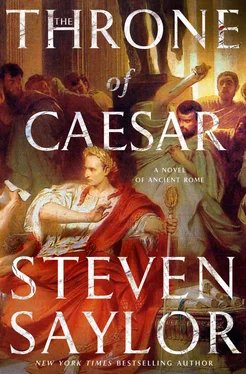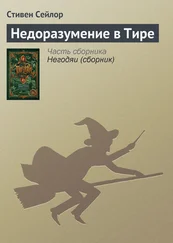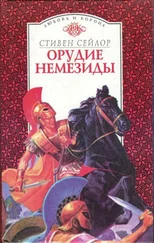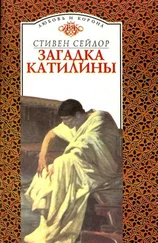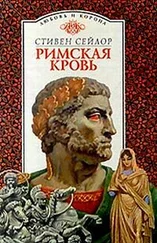Стивен Сейлор - The Throne of Caesar
Здесь есть возможность читать онлайн «Стивен Сейлор - The Throne of Caesar» весь текст электронной книги совершенно бесплатно (целиком полную версию без сокращений). В некоторых случаях можно слушать аудио, скачать через торрент в формате fb2 и присутствует краткое содержание. Год выпуска: 2018, Издательство: St. Martin's Press, Жанр: Исторический детектив, на английском языке. Описание произведения, (предисловие) а так же отзывы посетителей доступны на портале библиотеки ЛибКат.
- Название:The Throne of Caesar
- Автор:
- Издательство:St. Martin's Press
- Жанр:
- Год:2018
- ISBN:нет данных
- Рейтинг книги:5 / 5. Голосов: 1
-
Избранное:Добавить в избранное
- Отзывы:
-
Ваша оценка:
- 100
- 1
- 2
- 3
- 4
- 5
The Throne of Caesar: краткое содержание, описание и аннотация
Предлагаем к чтению аннотацию, описание, краткое содержание или предисловие (зависит от того, что написал сам автор книги «The Throne of Caesar»). Если вы не нашли необходимую информацию о книге — напишите в комментариях, мы постараемся отыскать её.
The Throne of Caesar — читать онлайн бесплатно полную книгу (весь текст) целиком
Ниже представлен текст книги, разбитый по страницам. Система сохранения места последней прочитанной страницы, позволяет с удобством читать онлайн бесплатно книгу «The Throne of Caesar», без необходимости каждый раз заново искать на чём Вы остановились. Поставьте закладку, и сможете в любой момент перейти на страницу, на которой закончили чтение.
Интервал:
Закладка:
I knew the tale of Pentheus mostly from the famous play by Euripides. Young Pentheus, king of Thebes, was so disgusted by the behavior of the local Bacchantes, including his own mother, that he banned the worship of Bacchus altogether. But no mortal dishonors a god without consequence. Bacchus decided to wreak a particularly terrible vengeance on Pentheus. Looking at the statue of Bacchus in the garden of Lepidus—youthful, serene, the giver of wine and joyful abandon—it was hard to imagine such a benevolent divinity inflicting such cruelty.…
* * *
Regaining his composure, Cinna spoke, drawing my attention away from the nearby statues in the garden.
“After words that do me such honor, Caesar, I hesitate to utter a single verse of my poem aloud, for fear that I must surely disappoint my listeners.”
“Nonsense, Cinna,” said Caesar. “These men will fall under the poem’s spell as surely as I did. Recite to us now. Do you require the written words?” He gestured to the scroll with its ornate ivory dowels.
Cinna shook his head. “I’ve labored so long over every word, the verses are engraved in my memory.”
He rose from his couch and stepped to the outer edge of the dining room, standing almost in the garden, so that he was framed by the moonlit statue of Orpheus on one side and Bacchus on the other, with his own face brightly lit by the flaming braziers. The placement of poet and statues was so ideal, so theatrical, it seemed almost contrived, not mere coincidence—but by whom? Not by any of the men present, I thought; by the Fates, perhaps.
As when Cinna had recited for me the ending of the Zmyrna, I was again spellbound by his voice: the timbre, the cadence, the flood of words—words beautiful and terrifying, uplifting and appalling, majestic and overwhelming, sometimes seeming to come from a great distance, like heavenly pronouncements, and at other times as intimate as a whispered kiss upon the ear. Caesar was right to praise him, I thought, but what Cinna had wrought was beyond praise. It was like a thunderstorm or avalanche or raging flood, a phenomenon overwhelming to mortal senses, demanding complete attention but beyond human judgment.
Caesar was also right in saying that the new poem was greater than the Zmyrna. Not merely greater, but ten times greater, dwarfing anything any Roman poet had done before.
The story of Orpheus was briefly recounted: his gift for music, his journey to the Underworld, his loss of Eurydice.
Then Cinna came to the death of Orpheus.
Beside the banks of the Hebrus River, attempting to console himself for the loss of Eurydice, Orpheus devised the most beautiful of all his songs, a song of lamentation but also of deep and endless love, love that transcended time and death. So compelling was his song that all creatures stopped to listen. Lions and lambs alike gazed at Orpheus, their eyes brimming with tears. The trees bent toward him, striving to embrace him with their leafy branches. Rocks, enraptured, rose into the air, arranged themselves in fantastic shapes, and swayed to the rhythm of his verses in a kind of dance.
Only Maenads were immune to his music. A group of Bacchantes, rampaging though the woods, came upon Orpheus as he sang. They covered their ears and shrieked, for the sweet music threatened to draw them out of their frenzy, to tame them as it had all other creatures and even the elements themselves.
“See, see the man who scorns us!” cried one of the Bacchantes. She hurled a spear at Orpheus, but being made of wood, the spear fell prostrate before the singer, then rose before him and twirled about, dancing in time to his song.
Another Bacchante reached for a stone and hurled it at Orpheus, but the other stones formed a wall to block its passage, so that it recoiled and fell to the ground—then rose up and joined its fellow stones in the dance.
The furious Bacchantes began to howl, and those with instruments—flutes, tambourines, braying horns, drums made from animal hides—created such a din that even the song of Orpheus was drowned by the discord. Now the stones could no longer hear his song, and neither could the wooden spears. The animals that surrounded Orpheus scattered and fled. The rocks fell to the ground. The trees drew back .
The howling Bacchantes surrounded Orpheus. They pelted him with stones, beat him with sticks, stabbed him with spears. Still he sang, though now only the Bacchantes could hear. His song became a cry for mercy, a song that would make even Medusa weep, but the Bacchantes were unmoved.
They laid hold of him and began to gouge his flesh. They tore off the hands that played the lyre so lovingly. They tore off his arms and legs. Some of them bit into the quivering flesh still warm with blood, while their sisters chanted a hymn to Bacchus Carnivorus, Eater of Raw Flesh—an ancient name of the god no one alive dared whisper except the Bacchantes.
Still Orpheus sang. They gouged his neck with sharp fingernails and ripped his head from the body. Into the Hebrus they threw his lyre and his head. His lips still murmured, his tongue still moved, but no sound issued from his breathless mouth to charm the river that carried him swiftly to the sea.
A wave chanced to toss his head onto the lyre, which cradled it as gently as a pillow. As the head, lifeless now, rolled over the strings, the motion produced the strangest and most mournful music ever made, with no mortal to hear it.
At last the lyre and the head were tossed upon the sandy shore of Lesbos. The head rolled away from the lyre and suffered the fate of all flesh: Insects consumed the eyes, all else besides the bones rotted and withered, and even the sun-bleached skull finally crumbled and turned to sand.
But the lyre of Orpheus remained intact and undamaged. It was undiscovered for many years, until the day a young woman walking on the beach, anxiously searching the horizon for the sail of a longed-for ship, came upon the lyre and picked it up. Her name was Sappho.…
* * *
Beside me on the couch, Meto drew a sharp breath. On his face I saw an expression of wonderment. Lesbos was famed in legend as the destination of Orpheus’s severed head—no doubt a shrine or temple on some Lesbian beach commemorated the event—but I had never heard of a link between Orpheus and Sappho. This was Cinna’s own invention, the kind of liberty that modern poets allowed themselves.
“Brilliant!” Meto whispered, and I knew he was praising Cinna’s bold innovation.
If Cinna heard, he gave no sign. He appeared to be almost in a trance, his eyes nearly shut, his arms at his sides, and his shoulders held stiffly back. He took a deep breath and resumed …
* * *
Watching all this from the heavens was the god Bacchus, whose only reaction to the mad destruction of his Maenads was a sly smile.
Then the smile of Bacchus faded.
He turned his attention to Thebes, which he saw at a great distance, like a city in miniature that rested on the palm of his hand. It was the city of his origin, for Bacchus had been born of the union of a Theban princess with Jupiter. The royal house of Thebes had refused to accept the divinity of Bacchus, who left the city to wander through the world, spreading the cultivation of the grape and inspiring the frenzy of his Bacchantes.
It was the singular wailing of a Bacchante that drew his attention to Thebes. She was Agave, Bacchus’s mortal aunt, and one of his most fervent acolytes. Agave was mother of young King Pentheus, the first cousin of Bacchus but as unlike Bacchus as any mortal could be: stern, humorless, rigidly disciplined, completely and devoutly sober.
Agave wailed because her son had outlawed the worship of Bacchus in every form. Even the drinking of wine was forbidden. What insanity was this? Surely the banning of madness was itself a mad act.
Читать дальшеИнтервал:
Закладка:
Похожие книги на «The Throne of Caesar»
Представляем Вашему вниманию похожие книги на «The Throne of Caesar» списком для выбора. Мы отобрали схожую по названию и смыслу литературу в надежде предоставить читателям больше вариантов отыскать новые, интересные, ещё непрочитанные произведения.
Обсуждение, отзывы о книге «The Throne of Caesar» и просто собственные мнения читателей. Оставьте ваши комментарии, напишите, что Вы думаете о произведении, его смысле или главных героях. Укажите что конкретно понравилось, а что нет, и почему Вы так считаете.
